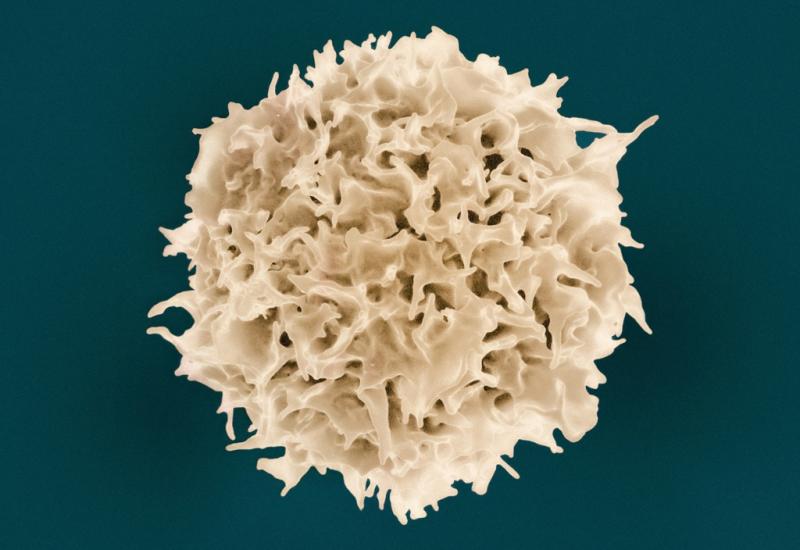
Vepdegestrant’s promise narrows
Arvinas and Pfizer abandon first-line atirmociclib combo plans only disclosed in January.
Arvinas and Pfizer abandon first-line atirmociclib combo plans only disclosed in January.

Arvinas and Pfizer’s estrogen receptor degrader vepdegestrant was already on shaky ground after a recent second-line breast cancer disappointment, and now the companies have unexpectedly dropped plans for a pivotal combination trial with the CDK4 inhibitor atirmociclib in first-line disease.
There are now questions about whether Pfizer, which has separately dialled back other ambitions for atirmociclib, will continue its efforts with vepdegestrant, whose only realistic prospect now is second-line ESR1-mutant disease. The partners have also abandoned another phase 3, due to test vepdegestrant alongside an unnamed CDK4/6 inhibitor in second-line ER-positive, HER2-negative disease.
Both studies had been slated to start in the second half; interestingly, they were still listed among Pfizer’s 2025 catalysts in its earnings presentation from Tuesday.
Notable vepdegestrant trials in ER+ve/HER2-ve breast cancer
| Trial | Setting | Regimen | Note |
|---|---|---|---|
| Veritac-2 | 2nd-line | Monotx, vs Faslodex | Topline results Mar 2025: showed PFS benefit in ESR1m, but not in all-comers; full data at ASCO |
| Veritac-3 | 1st-line | + Ibrance, vs letrozole + Ibrance | Abandoned Jan 2025 to focus on vepdegestrant + atirmociclib combo |
| Unnamed | 1st-line | + atirmociclib, vs ? | Abandoned May 2025; had been due to start H2 2025 |
| Unnamed | 2nd-line | + undisclosed CDK4/6i, vs ? | Abandoned May 2025; had been due to start H2 2025 |
Source: OncologyPipeline & company presentations.
In addition, Arvinas disclosed plans to cut its workforce by a third, as part of efforts to preserve cash until the second half of 2028. All three moves were announced in the group’s first-quarter earnings release on Thursday; Arvinas's stock closed down 25% that day.
Atirmo doubts
Arvinas only announced the plans to combine vepdegestrant with atirmociclib in January; that made sense given questions over the logic of a combo with Pfizer’s less selective CDK4/6 inhibitor Ibrance.
At the time, vepdegestrant was being combined with Ibrance in Veritac-3, but that study was wound down, having only made it to the safety lead-in stage. Still, that’s further than the trial combining vepdegestrant with the CDK4-selective atirmociclib got, with this unexpectedly now being ditched too.
A big question, noted by Evercore ISI’s Jonathan Miller, is whether Pfizer is losing confidence in oestrogen degraders broadly, or in the vepdegestrant/atirmociclib combo specifically. The doublet is being tested in the phase 1/2 Tactive-K trial, but results haven’t yet been reported.
Atirmociclib is already in the pivotal first-line Fourlight-3 trial, in which it’s being combined with letrozole, versus a CDK4/6 inhibitor plus letrozole.
However, Pfizer recently downgraded the second-line Fourlight-1 study from phase 3 to phase 2, and cut the number of patients from 500 to 333. At the time, Pfizer said it was focusing atirmociclib on first-line and early metastatic disease, while in second-line breast it was prioritising its KAT6 inhibitor PF-07248144.
KAT6 combo
On Thursday, Arvinas said a vepdegestrant combo cohort was being added to Pfizer’s phase 1 trial of PF-07248144; Pfizer is also planning to start a pivotal second-line trial of the KAT6 inhibitor this year.
The latest news could stoke fears among Arvinas investors that Pfizer might hand back rights to vepdegestrant, especially after the Veritac-2 second-line monotherapy trial showed lacklustre results, with a benefit in ESR1 mutants not extending to all-comers.
Arvinas had always hoped that vepdegestrant, being a Protac, could produce more potent degradation than traditional SERDs, and also work in wild-type patients – but these hopes came to nothing.
Veritac-2 will be presented at the upcoming ASCO meeting, giving investors a chance to see if Arvinas’s claims of best-in-class efficacy hold up. Miller noted that the second-line market could be “meaningful”, but still pegged this at around $500-750m in annual sales. That might not be enough to keep Pfizer interested.
3063













